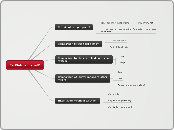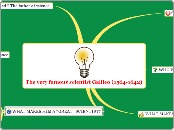astronomy
Detailed breakdown
Future missions and space probes for further exploration of the universe
Development of more powerful telescopes and instruments
Efforts to detect signs of life beyond Earth
The exploration of habitable zones and potential life-supporting conditions
Understanding their influence on cosmic structure and expansion
The search for the invisible components of the universe
Exploration of their gravitational effects and behavior
Evidence for the existence of black holes
Identification of planets outside our solar system
Introduction of new observational techniques
The realization that the universe is expanding
Edwin Hubble's observations of distant galaxies
Exploring the physical properties of stars and galaxies
Understanding the motion and interactions of celestial objects
Use of equations and computer simulations to study celestial phenomena
Types of observations
Radio wave observations
Visible light observations
Radio telescopes
Optical telescopes
Galileo's observations supporting the heliocentric model
Copernicus and his proposal of a heliocentric model
Ptolemy and his refinement of the geocentric model with epicycles
Aristotle and his geocentric model of the universe
Ancient Egyptians and their development of a calendar based on celestial events
Ancient Mesopotamians and their use of celestial bodies for navigation and timekeeping
Current and Future Challenges in Astronomy
Advancements in space exploration technology
Search for extraterrestrial life
Dark matter and dark energy
Discoveries and Advancements in Astronomy
The study of black holes and their properties
The discovery of exoplanets
Hubble's Law and the expanding universe
Branches of Astronomy
Theoretical astronomy
Study of celestial mechanics and astrophysics
Mathematical models and simulations
Observational astronomy
Types of observations (visible light
etc.)
radio waves
Telescopes and other observation tools
Historical Development of Astronomy
The shift from geocentric to heliocentric models
Contributions of ancient astronomers
Early civilizations and their astronomical observations
Introduction
Importance of studying astronomy
Definition of astronomy









